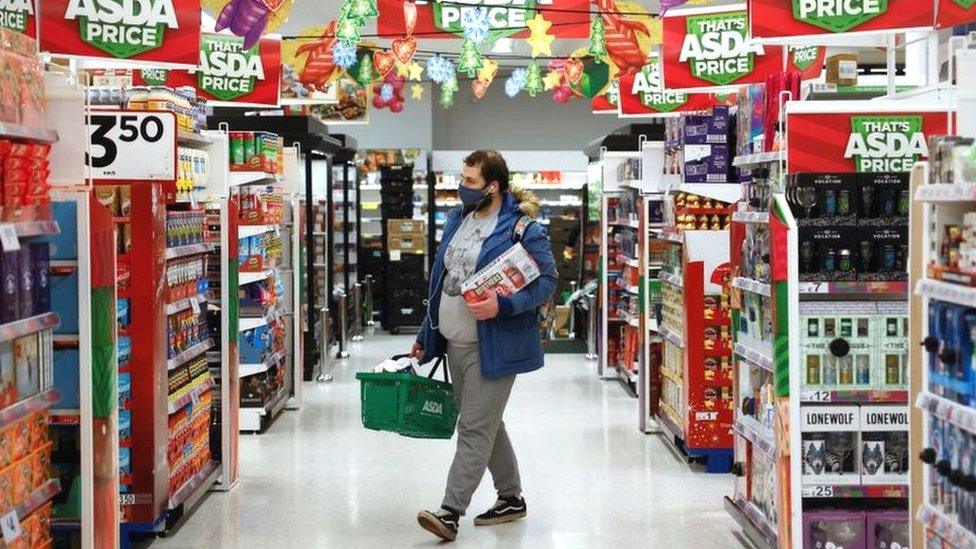Shoppers warned of £180 rise in annual food bills
- Published
- comments
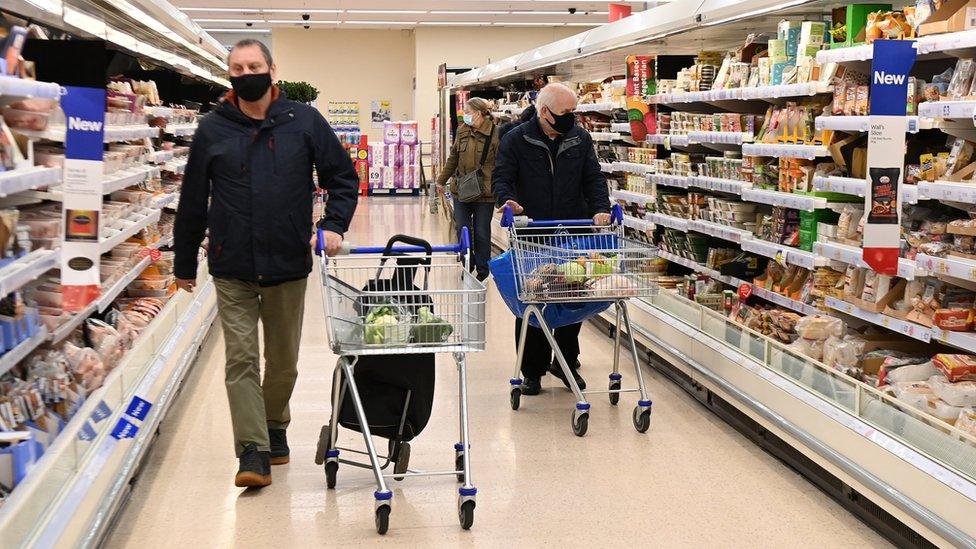
Annual food bills are set to rise by £180 on average as the cost of living squeeze continues to hit household budgets, according to consultants Kantar.
Annual grocery inflation was 3.8% over the past four weeks, up from 3.5% in December, Kantar found.
Sales of savoury snacks, fresh beef and crisps rose last month, while beer, bacon and vitamins fell
Dry January and Veganuary boosted sales of vegan and low alcohol products.
Fraser McKevitt, head of retail and consumer insight at Kantar, said: "Prices are rising on many fronts, and the weekly shop is no exception.
"Like-for-like grocery price inflation, which assumes that shoppers buy exactly the same products this year as they did last year, increased again this month.
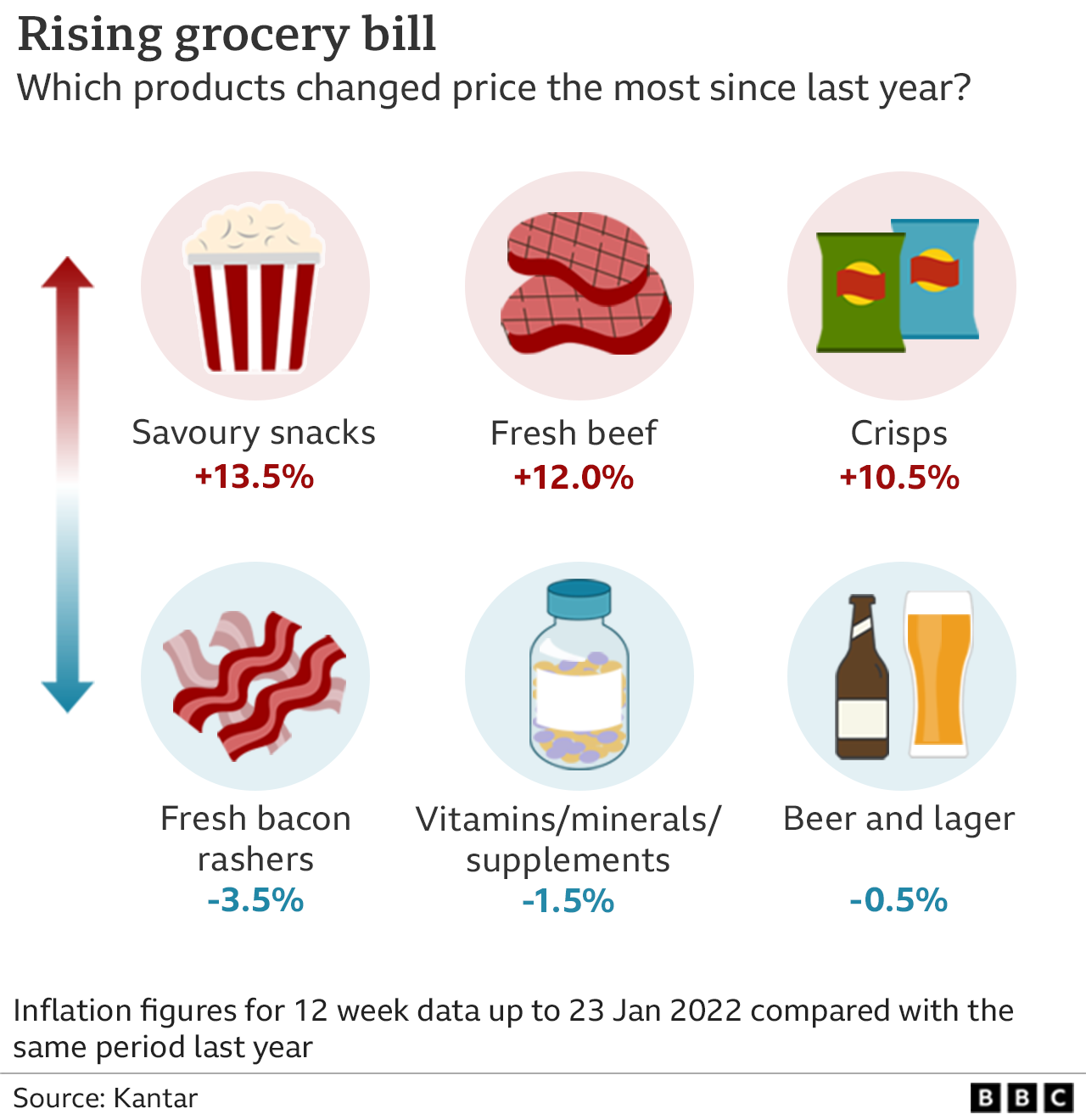
"Taken over the course of a 12-month period, this 3.8% rise in prices could add an extra £180 to the average household's annual grocery bill.
"We're now likely to see shoppers striving to keep costs down by searching for cheaper products and promotions. Supermarkets that can offer the best value stand to win the biggest slice of spend."
Separate figures from the Office for National Statistics, external (ONS) show two-thirds of people surveyed in January said their cost of living had risen in December.
Of these, 87% said the price of their food shop had increased, and 79% said gas and electricity prices were a factor.
Consumer price inflation is at a 30-year high of 5.4%, according to the ONS, and is predicted by the Bank of England to reach about 6% by April.
The Bank of England raised its key interest rate in December in a bid to tackle inflationary pressures, and many analysts expect another rate increase from the Bank later this week.

Mr McKevitt added that the end of lockdown rules meant pre-pandemic shopping patterns were starting to return.
The return to the office saw an increase in sales of personal hygiene sales, Kantar found, with razor blade sales up 14% and deodorant up 20%.
There was also strong growth in plant-based products, with shoppers embracing vegan diets in January. About 10.7 million households bought at least one dairy-free or meat-free alternative.
Last month also saw a 5% increase in no- or low-alcohol drinks, as consumers taking part in Dry January avoided alcohol.
With more shoppers visiting supermarkets, there were heavy falls in online grocery sales last month, Kantar said. Online purchases were down 15% year-on-year.
But online orders remain above pre-pandemic levels, with orders accounting for 12.5% of all grocery spending.
Spending on essentials
A survey of 4,500 people in January by the ONS found that 66% of those asked said that the cost of living had risen in the previous month.
A third of those who said their cost of living had risen said they were cutting back on their use of gas and electricity.
Energy regulator Ofgem will increase its price cap further in April, which is expected to add hundreds of pounds to domestic annual energy bills.
When energy bills go up, poorer households are harder hit.
Latest ONS figures show that, in the year to the April 2020, the poorest 10% spent 54% of their average weekly expenditure on essentials, such as housing - including energy bills - food and transport. The richest 10% spent 42% of their average weekly spending on the same essentials.
In the ONS survey, just over half said they were cutting back on non-essentials as the cost of living goes up. A quarter were using more of their savings.
Related topics
- Published26 January 2022

- Published25 January 2022
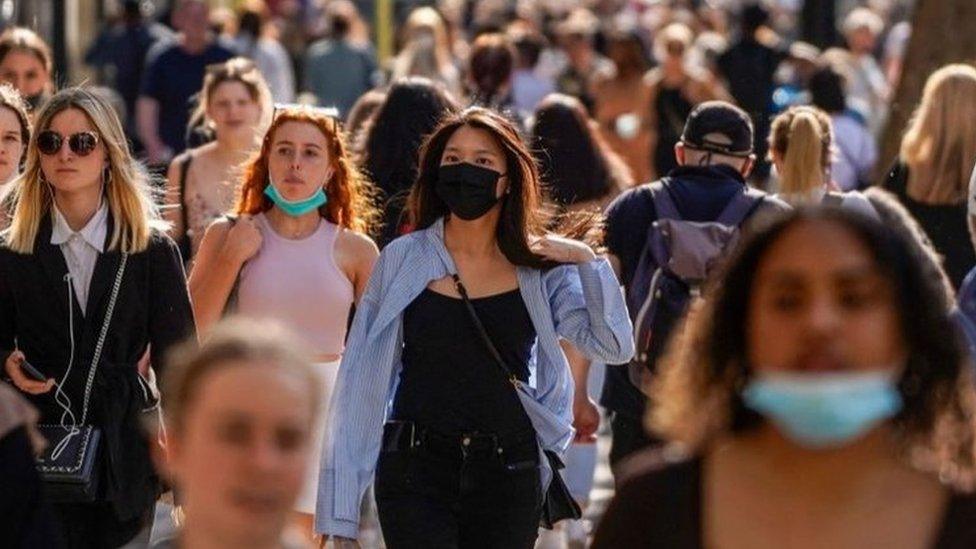
- Published12 January 2022
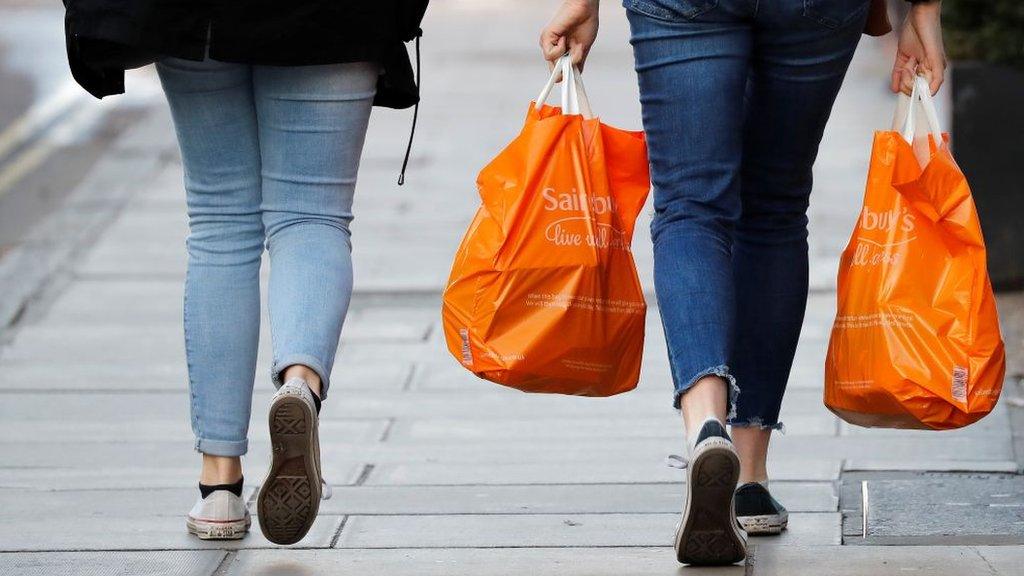
- Published5 January 2022
